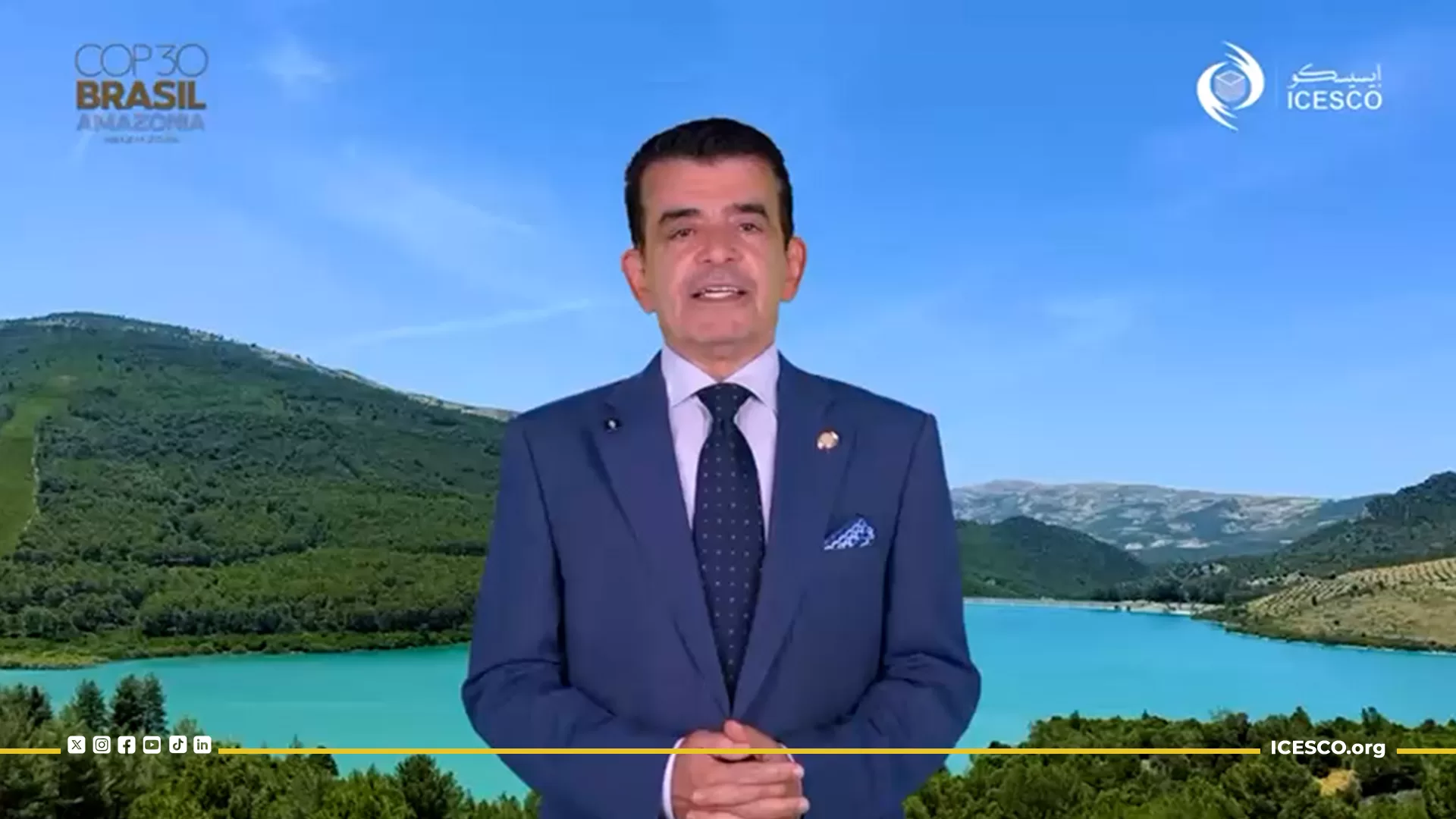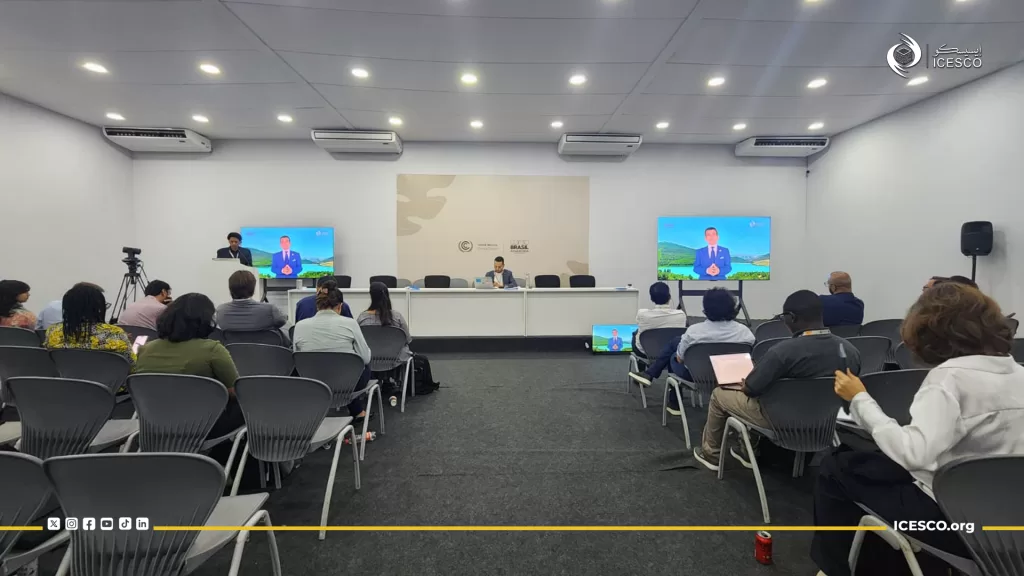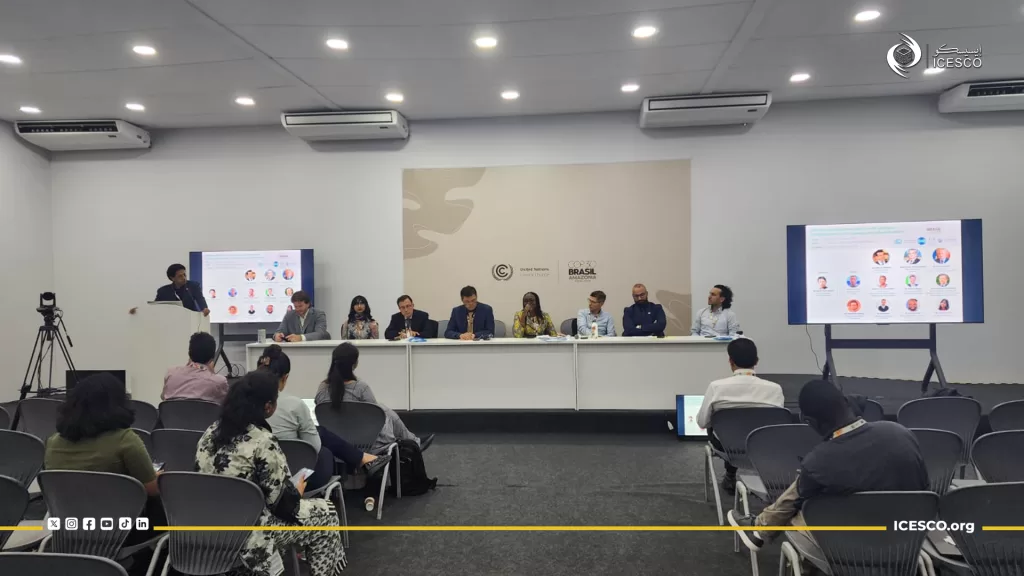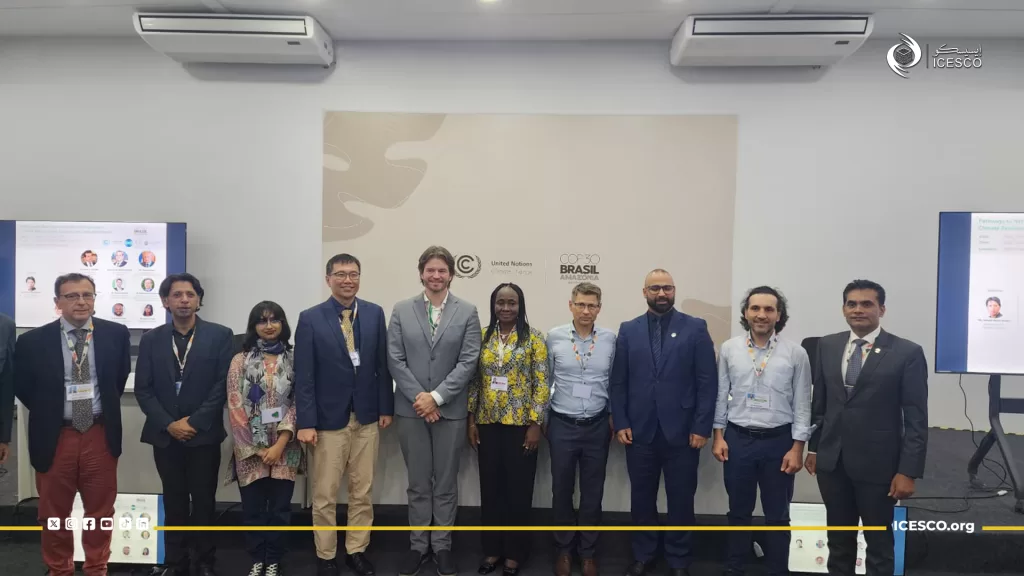
At COP30, ICESCO Director-General Calls for Human-Centered International Unity to Tackle Climate Change

16 November 2025
Dr. Salim AlMalik, Director General of the Islamic World Educational, Scientific and Cultural Organization (ICESCO), called for human-centered international unity to tackle the climate change crisis, stressing that the path to net-zero emissions must be built on cooperation, trust, and shared humanity. This was stated in a recorded speech presented during a panel discussion at the Conference of the Parties on Climate Change (COP30) in Brazil.

The session, organized by ICESCO on Friday, 14 November 2025, in partnership with the Commission on Science and Technology for Sustainable Development in the South (COMSATS) and the Union for the Mediterranean (UfM), was titled “Pathways to Carbon Neutrality through South-South Cooperation: Resilient Climate Technologies, Enhanced Capacities, and Cultural Roots,” with the participation of a number of international climate experts and specialists.
In his speech, Dr. AlMalik emphasized that climate action must be based on shared global responsibility and a renewed commitment to the principles of justice and solidarity, noting that the climate crisis is no longer a distant threat, but a daily reality for millions of people in the Global South. He pointed out that the air we all breathe and the water shared by humans are all elements that belong to one planet and one humanity.

ICESCO Director General further noted that the effects of climate change, from water scarcity and extreme weather phenomena to declining agricultural productivity, are reshaping the daily life of people in a number of Member States, stressing the importance of intensifying cooperation among countries of the Global South, especially as they are currently leading the most innovative experiences in adaptation.
Dr. AlMalik concluded his speech by saying that the path to a zero-emission future can only be built collectively through trust, solidarity, and a shared ambition to create a world worthy of the dreams of the children and youth of the future.
The session also featured an interactive discussion between representatives of participating organizations and experts. Ambassador Dr. Mohammad Nafees Zakaria, COMSATS Executive Director, considered South-South cooperation to be vital in addressing climate challenges, with the need to transfer technology from the global North given its historical responsibility for exacerbating the crisis. Dr. Nasser Kamel, Secretary-General of the Union for the Mediterranean (UfM), pointed out that achieving carbon neutrality requires integrated frameworks that link technology, culture, and institutions.




